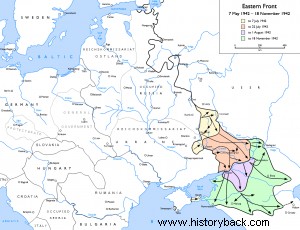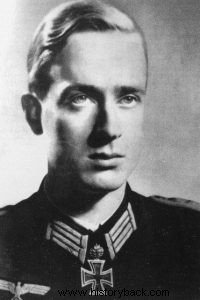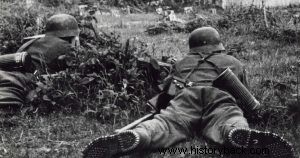
At the beginning of Operation "Barbarossa" Lieutenant Georg Michael was the commander of the 22nd Cavalry Regiment of the German 1st Cavalry Division (MI). In May 1942, however, the position on the Eastern Front was served by the 24th Panzer Division (MPa), which had been formed with elements of the 1st MI. In view of the German summer offensive, the 24th Infantry Division joined the XXXVIII Tank Corps.
On the night of June 27-28, 1942, the offensive began. Lieutenant Michael was among the men of the 24th MPa. The Germans, after crossing various small rivers, prepared to attack Voronezh. A battle group was formed with the core of the 26th Fighter Regiment reinforced with elements of the 24th Panzer Regiment.
Voronezh
On the evening of July 3, the battle group was divided into two sections, one tasked with capturing the Rudkino pass and the other with the capture of the bridge over the Voronezh River of the same name. The head of the battle group Colonel Edelsheim called Michael over to him who belonged to the second division being the head of the 6th Company of the 26th Fighter Regiment.
“Listen to me Michael. You will lead the advanced divisions to the bridge, clear the area and continue through the forest to Voronezh.'' This is exactly how it happened and after overcoming the Soviet resistance they reached the edges of the forest.
But there they were pinned down by the fire of two Soviet anti-aircraft guns. When Mikael's men tried to take them over, they received fire from light weapons, but also from mortars. “The woods are full of Russians, Lieutenant,” a non-commissioned officer told Michael. "Don't worry, the 5th Company is coming," he replied.
Other German divisions under Major Hayden soon arrived. The major asked the lieutenant, "What do you say Michael, should we attack?" "By all available means," was the reply. Five minutes later the Germans rushed in and the Soviets retreated without a fight. The Germans also saw a phalanx of 27 T-34 tanks heading towards Voronezh.
Soviet counterattack
The Germans occupied the Soviet positions and after the arrival of the 7th Company they formed adefensive perimeter bordering the edge of the forest near the city's airport area.
Immediately Soviet aircraft began to take off and hit the German positions. The Germans hit some aircraft in the take-off phase with machine gun fire.
As darkness fell 16 T-34 tanks appeared. Mikael noticed that the crew chiefs were exposed to the towers apparently for better visibility. With a rifle with a scope he hit some forcing others to enter their chariots. However, the loss of so many crew chiefs suddenly led to the Soviet counterattack being aborted.
After a quiet night the Germans came under heavy fire from all directions at first light. The Soviets had deployed snipers in the nearby trees. Next to Michael, three men of the 3rd Platoon were killed by sniper fire.
Suddenly a platoon member said to him:"A Russian battalion, Mr. Lieutenant." "Let them get within 200m" , he replied. And so it happened, and when Michael gave the order to open fire, the Soviet battalion was decimated.
But the Germans' ammunition began to run out. "Don't open fire before they get within 30m," Michael ordered. The Soviets repeated the attack supported by a tank. Lance Corporal Peltz hit it seven times with an anti-tank rifle.
The chariot left. Immediately Sergeant Doze attacked the Soviet infantry with a captured Soviet armored vehicle, driving them to flight. When an enemy tank appeared, he exited the vehicle and destroyed it with a Teller mine.
The Soviets nevertheless attacked again. “Hold on guys. Let every bullet take its place", Michael shouted to his men. Attack parried.
A little later Colonel Edelsheim appeared with reinforcements. They had been rescued but had lost 55 men. It was just a day of war in the vast expanses of the Soviet Union for Michael and his men.


Georg Michael.

